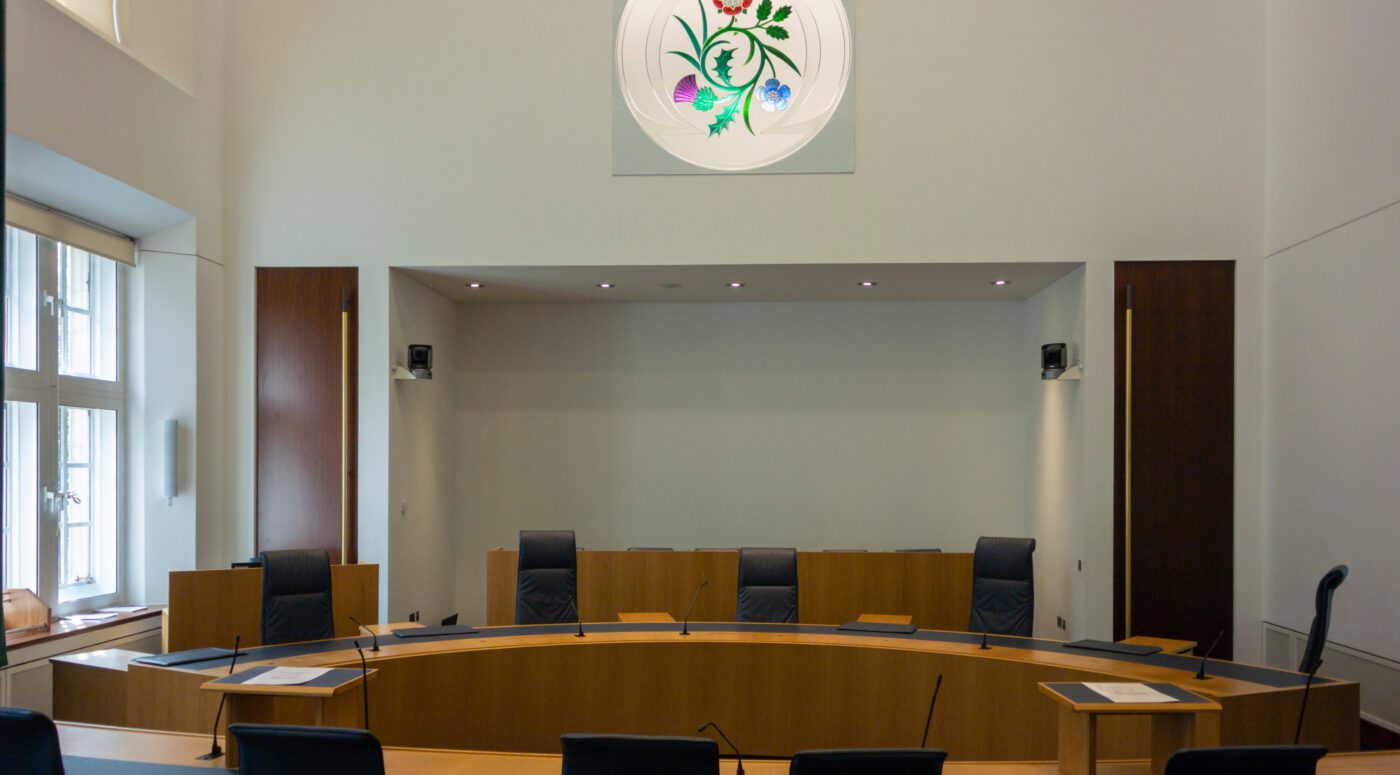

A court summons, also known as a postal requisition, is a document from the court specifying that you need to attend court at a certain date and time to answer to charges against you. This document is also known as an MG4D or MG4E. This is an alternative procedure to being formally charged, i.e. being handed the charge sheet whilst you are at the police station. One of the downsides to being charged via a summons is that it can arrive weeks or even months after your police interview. Receiving a court summons is never a nice surprise.
But what should you do if you get one? The most important thing is: don’t ignore it! Either respond by letter using the form provided or diarise the date and make sure that you attend court on time. Failing to appear or ignoring the letter could make your predicament much worse. To give yourself the best possible chance of receiving a favourable outcome, instruct a trustworthy criminal defence solicitor as soon as possible. This article addresses the ins and outs of court summons. We explain when you can expect to receive one, how they are delivered, and the consequences if your summons does not arrive.
When can I expect to receive a court summons?
You can expect to receive a court summons or postal requisition when you have been alleged to have committed a criminal offence. It is becoming increasingly popular to charge suspects by way of a postal requisition or summons rather than when a suspect returns to answer bail. This is because fewer suspects are being released on bail due to the restrictions on length of bail detailed by the Police, Crime, Sentencing and Courts Act 2022. Whereas previously suspects were released on bail and were charged at their bail date, nowadays it is more common for suspects to be released under investigation and notified that they have been charged by way of a summons.
Summons are frequently issued for non-payment of council tax or breach of bail conditions. They are also issued for more serious offences, such as fraud and money laundering. They can relate to charges brought by the police, the National Crime Agency (NCA) or HM Revenue and Customs (HMRC), or by your local authority. Where a summons is issued for non-payment of council tax, an additional fee is added to the amount owing on your council tax bill.
For some offences, you will have been interviewed previously, possibly some months ago, on a voluntary basis. In this instance, perhaps there was not sufficient evidence to charge you at the time or perhaps the police needed to refer the matter to the CPS for a charging decision. For other types of offences, such as road traffic violations, you may receive a summons without having previously undergone an interview. This could arise where you already have penalty points on your licence and the additional points make you eligible for disqualification. At the date of your hearing, the judge will decide whether you should be disqualified from driving and for how long.
What is the procedure when a summons is issued?
Not all defendants will be issued with a summons. According to Essex Police, a summons will only be issued where there are no requirements for bail conditions; the suspect can read and write; does not require the assistance of an interpreter, and has provided a suitable address for service of a postal requisition. If any of these criteria are not met, the defendant should be handed the charge sheet at the police station.
The procedure for issuing a summons is:
- The prosecutor must serve a detailed account of the offence that has been committed upon the court.
- The prosecutor must submit this account to the Magistrates’ Court or court clerk.
- The court will issue the summons, which will be sent to you (the suspect).
- Sometimes, in addition to the court summons, the police will issue an arrest warrant. This is more likely if you do not have a fixed address, or if it is believed that you will not attend court.
- The summons will be served upon you. Sometimes it is accompanied by a statement of facts.
- If you receive a summons, it is a good idea to consult with a criminal defence solicitor who will advise you on your options. You do not have to use the same solicitor who represented you at your police interview.
- You can plead guilty by post or complete a form stating your intention to plead not guilty. Alternatively, you can attend court on the date stated on the requisition to advise the court of your plea.
- If you do not respond via post, you must attend court on the court date that has been given. If you do not do so, the court may issue a warrant for your arrest. Once you have been arrested, you will be held in custody until the next available court date.
- When you attend court, the charge will be read out to you. How it is then dealt with will depend on whether it is a summary only, either way, or indictable only offence.
How is a court summons delivered in the UK?
The court summons can be either served in person, i.e. handed to you, or sent via tracked or recorded delivery post. It will be sent to your last known address. Sometimes you may receive a call from the police informing you of their intention to prosecute. In those circumstances, you can expect a summons to be on its way. However, this is not always the case and sometimes a summons can take you by surprise.
For summary only offences, you have the option to plead guilty via post, where the maximum penalty for the offence is not more than a 3 month custodial sentence. If you plead guilty by post, you do not have to attend court. However, for more serious offences, you will have to attend court to enter your guilty plea.
What happens if I never received a summons?
If you are not charged at the police station and you do not receive a summons, you are under no obligation to attend court. Remember, though, that the summons will be sent by recorded or tracked delivery, so the court will have evidence if the letter is delivered. Evidence of delivery will be taken by the court as evidence that you have received the summons. If you cannot make the date on the summons, instruct a criminal defence solicitor who can make a request on your behalf for an adjournment. This means that your court date will be postponed.
If you receive a summons a long time after you are interviewed, it is worth speaking to a criminal defence solicitor as if it relates to a summary only offence it may be out of time. For summary only offences, criminal proceedings must be instituted within 6 months of the date of the offence. Examples of summary only offences include common assault, driving without insurance, and driving with excess alcohol.
What happens on the day that I attend the summons?
Although you will be given a time to attend court, you may have to wait a while to go into the courtroom. This is because often multiple defendants will be told to attend court at the same time. You should bear this in mind when planning your day – e.g. making sure there is sufficient time on your parking ticket, taking the day off work, making childcare arrangements etc.
If you have instructed a solicitor, they will be there to meet you on the day of court. They will discuss the prosecution’s evidence with you and your options in respect of how to plead, i.e. guilty or not guilty. They will also advise you if the offence that you have been charged with is summary only, either way, or indictable only. These offence categories determine which court the case will be heard in. Summary only cases are generally heard in the Magistrates’ Court. Either way cases can be heard either in the Magistrates’ Court or the Crown Court, whereas indictable only offences must be heard in the Crown Court. If you plead guilty to a summary only or either way offence, it is possible that you could be sentenced on the day that you attend court for the summons.
Where to get further help?
If you have received a court summons or postal requisition, contact Stuart Miller Solicitors today in order to instruct a criminal defence solicitor in whom you trust. We pride ourselves on going the extra mile for our clients. Whether you plead guilty or not guilty we will do our utmost to ensure that you receive top quality legal representation. The right solicitor really can make all the difference. Contact us today, and one of our solicitors will be glad to arrange a meeting with you.
(This page was last updated on November 15, 2023.)
OUR COMMITMENTS TO YOU:
-
Responsive
A legal expert will consult you within 24 hours of making an enquiry.
-
Empathetic
We will always treat you with trust, understanding and respect.
-
Specialised
Your case will be handled by an expert who specialises in your type of offence.
-
Proactive
We will take early action to end proceedings as soon as it is practically and legally possible to do so.
-
Engaged
You will be kept updated on your case at all times. We will provide a named contact available to answer your questions.
-
Caring
We understand this is a difficult and stressful time for you and your family. Our team will support you every step of the way.
-
Tenacious
We will never give up on your case. We fight tirelessly to get you the best possible outcome.
